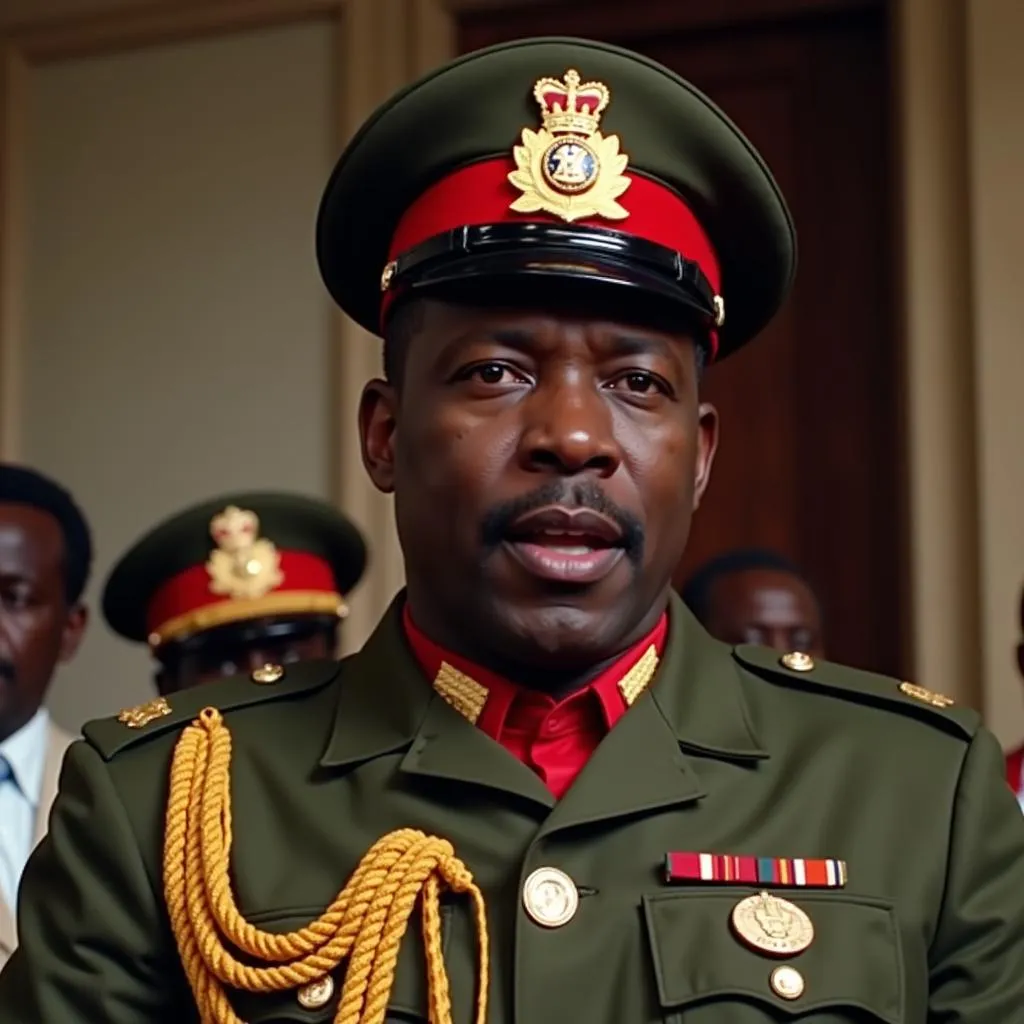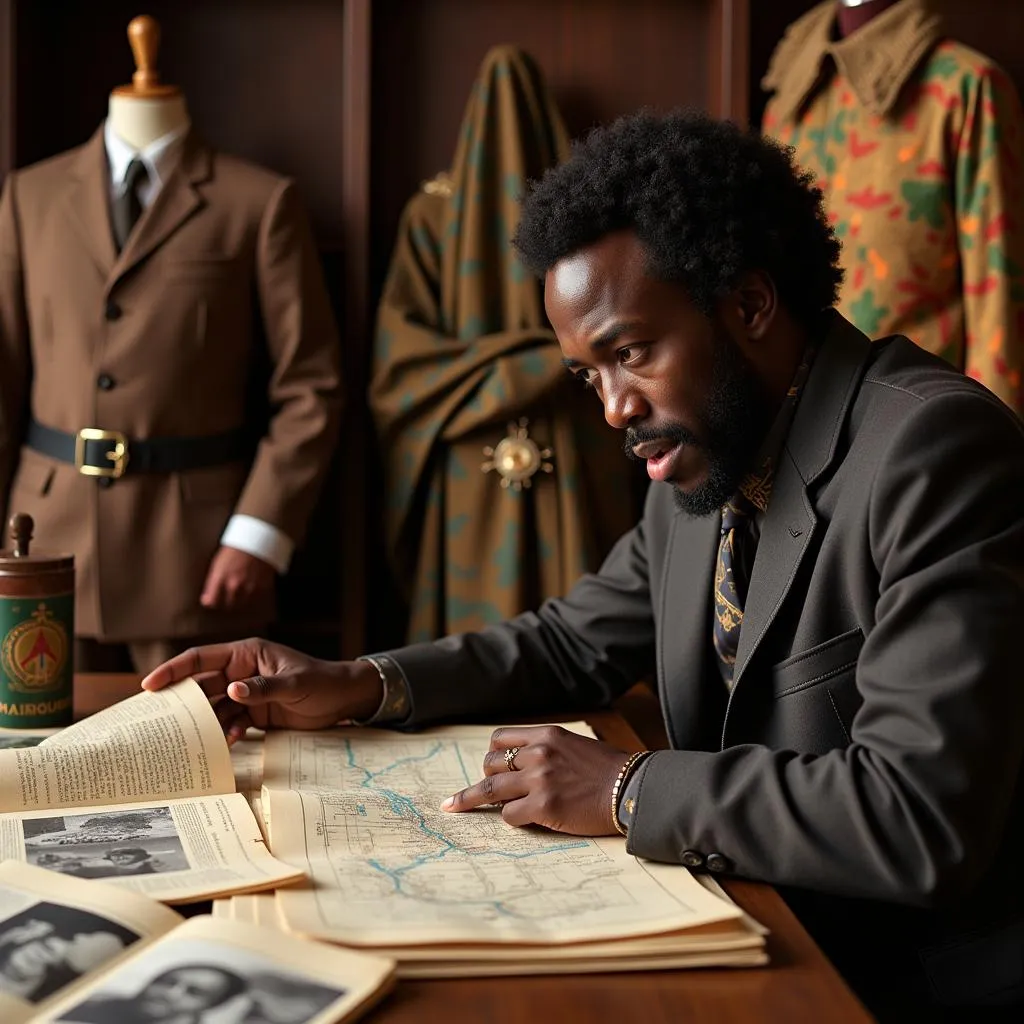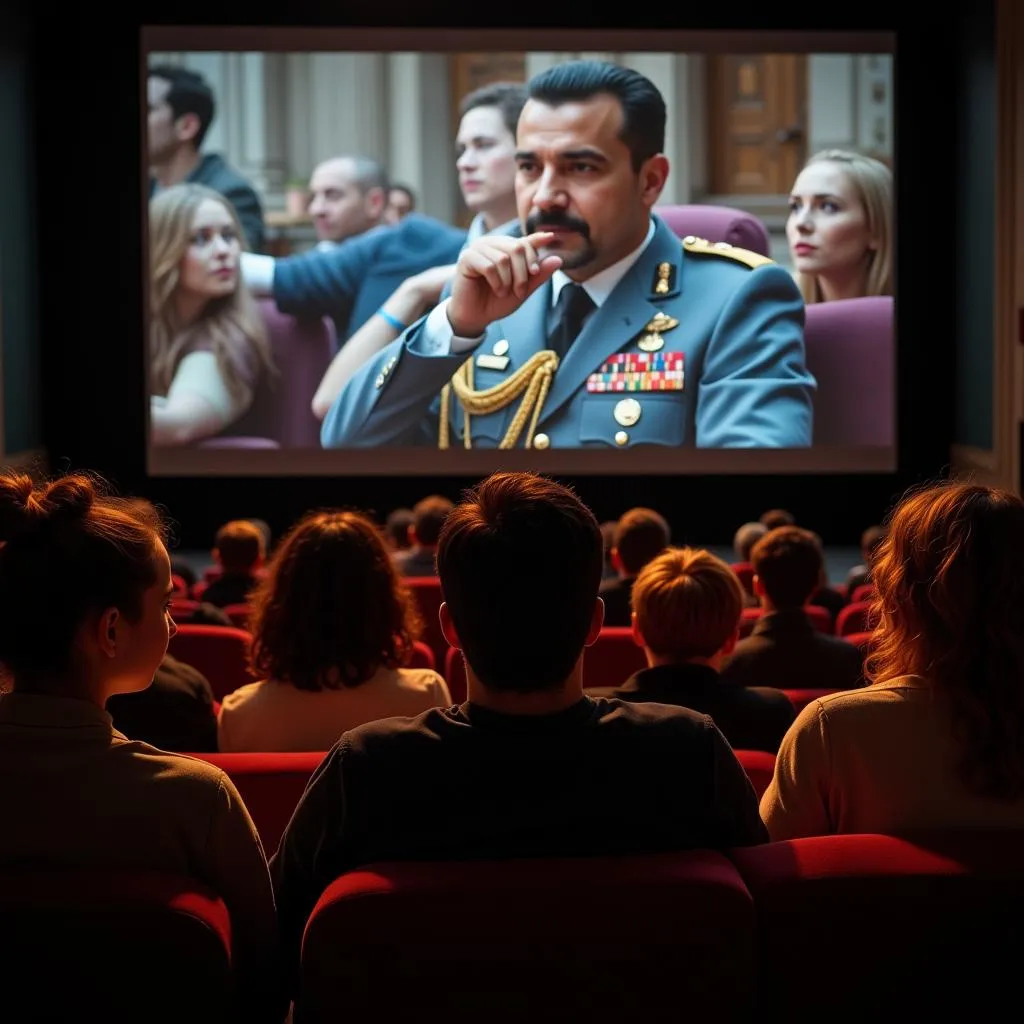The Actor Who Won an Oscar for Portraying an African Dictator
The quest for an Oscar is often marked by actors taking on challenging and transformative roles. But few performances have captured the world’s attention quite like an actor winning an Oscar for portraying an African dictator. These roles require a deep dive into the psyche of complex, often controversial, historical figures, demanding both acting prowess and cultural sensitivity.
Forest Whitaker as Idi Amin in “The Last King of Scotland” (2006)
 Forest Whitaker as Idi Amin in The Last King of Scotland
Forest Whitaker as Idi Amin in The Last King of Scotland
Forest Whitaker’s portrayal of Ugandan dictator Idi Amin in “The Last King of Scotland” is a masterclass in acting. Whitaker disappeared into the role, embodying Amin’s charisma, brutality, and descent into madness with chilling authenticity. He mastered Amin’s mannerisms, accent, and the unpredictable nature that defined his reign. This performance earned Whitaker widespread critical acclaim, including the Academy Award for Best Actor in 2007.
Whitaker’s portrayal sparked global conversation about Amin’s legacy, prompting many to delve deeper into the history of Uganda and the impact of Amin’s dictatorship. The film, while fictionalized, offered a glimpse into the horrors that unfolded under Amin’s rule, highlighting the human cost of his reign of terror.
The Challenges and Responsibilities of Portraying an African Dictator
 An actor researching and preparing for the role of an African dictator
An actor researching and preparing for the role of an African dictator
Playing an African dictator is not without its challenges. It requires a careful balance of portraying the individual’s humanity while not shying away from the atrocities they committed. There’s a responsibility to avoid perpetuating harmful stereotypes and to represent the history and culture of the nation in question with accuracy and respect.
“It’s a tightrope walk,” says Dr. Abena Oduro, Professor of African Studies at the University of Ghana. “You’re dealing with real lives, real trauma. The actor needs to honor that while also bringing the character to life in a way that feels authentic and not exploitative.”
The Impact of Film on Understanding History
Films that tackle complex historical figures like African dictators can be powerful tools for education and sparking dialogue. When done well, these films can challenge preconceived notions, humanize the victims of oppression, and encourage audiences to engage with history on a deeper level.
 An audience captivated by a film about an African dictator
An audience captivated by a film about an African dictator
However, it’s crucial to remember that film is a form of entertainment, not a documentary. While a performance can be captivating and thought-provoking, it’s essential to seek out diverse perspectives and engage with historical scholarship to gain a more comprehensive understanding of the past.
The portrayal of African dictators in film is a complex and evolving conversation. As we continue to grapple with the legacy of these figures, it’s imperative that filmmakers, actors, and audiences approach these stories with sensitivity, nuance, and a commitment to historical accuracy.

